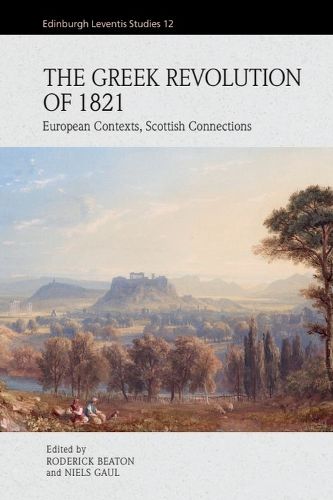Readings Newsletter
Become a Readings Member to make your shopping experience even easier.
Sign in or sign up for free!
You’re not far away from qualifying for FREE standard shipping within Australia
You’ve qualified for FREE standard shipping within Australia
The cart is loading…






Political history and history of ideas, art history, theories of nations and nationalism, Classical Reception studies, modern Greek history and modern Scottish history come together in this collection of essays by experts in all these fields. The starting point for the volume is the bicentenary of the Greek Revolution (18211832), for the first time linked to the cultural and intellectual history of Scotland, and particularly of Edinburgh, during roughly the same period. The book's two parts respectively contextualise the struggle for Greek national independence in space and time, and explore the engagement of Scots with Greece during the period, as well as parallels between the two nations. Throughout, the Greek Revolution and its Scottish supporters are viewed in relation to the Classical Tradition, or Classical Reception. This pioneering book makes a unique contribution to the burgeoning literature on the Greek Revolution during the anniversary decade, and raises issues of national identity and self-determination that have contemporary resonances in both Greece and Scotland, at opposite ends of Europe, today.
$9.00 standard shipping within Australia
FREE standard shipping within Australia for orders over $100.00
Express & International shipping calculated at checkout
Political history and history of ideas, art history, theories of nations and nationalism, Classical Reception studies, modern Greek history and modern Scottish history come together in this collection of essays by experts in all these fields. The starting point for the volume is the bicentenary of the Greek Revolution (18211832), for the first time linked to the cultural and intellectual history of Scotland, and particularly of Edinburgh, during roughly the same period. The book's two parts respectively contextualise the struggle for Greek national independence in space and time, and explore the engagement of Scots with Greece during the period, as well as parallels between the two nations. Throughout, the Greek Revolution and its Scottish supporters are viewed in relation to the Classical Tradition, or Classical Reception. This pioneering book makes a unique contribution to the burgeoning literature on the Greek Revolution during the anniversary decade, and raises issues of national identity and self-determination that have contemporary resonances in both Greece and Scotland, at opposite ends of Europe, today.